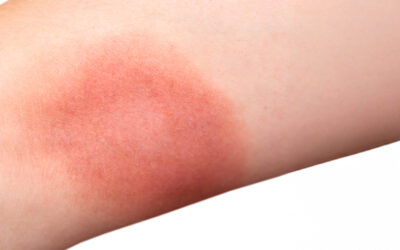How to prepare for the flu season
Flu season is upon us. In this article, we have everything you need to know about preparing for the flu season and how to reduce your risk of getting sick

What is the flu?
The flu (influenza) is a contagious respiratory illness caused by the influenza viruses. Typical symptoms, which come on fairly suddenly include a sore throat, cough, fever, muscle pains and headache. For healthy people, the flu is a moderately severe illness. However, it can lead to serious complications in vulnerable people, such as the elderly and people with some long-term medical conditions.
How can you reduce your risk of getting the flu?
The flu is caused by airborne flu viruses spread the same way as a cold virus — through coughing, sneezing, sharing food, touching contaminated surfaces, or close contact with an infected person. While you can’t always avoid catching the flu, there are many things you can do to significantly reduce your risk of becoming ill.
Practice good hygiene
One of the best strategies is to practice good personal hygiene. This includes washing your hands thoroughly with soap and water, or using an alcohol-based hand sanitiser:
- after using the toilet
- after you’ve been in public places such as shopping centres or public transport
- before, during and after food preparation
- after you blow your nose
- after you cough into your hands
- after changing a young child’s nappy or helping them got to the toilet
- before eating or helping someone else to eat.
You should also avoid touching your eyes, nose and mouth.
Boost your immune system
When you’re healthy and have a strong immune system, your body does a better job at fighting off viruses. To improve your immune system you should:
- Eat well — Focus on eating a wide range of foods including lean protein, dairy, wholegrains, nuts, seeds and legumes, and plenty of fruits and vegetables. The more colourful your plate (in terms of fruit and veg), the more vitamins and minerals you’ll be getting.
- Take vitamins — If your diet is lacking in nutrition, taking a multivitamin supplement can also help.
- Sleep well — Most adults need seven to eight hours sleep a night. Not getting enough sleep can compromise your immune system.
- Reduce or manage stress — When we’re stressed our immune system is not able to fight viruses and infections as effectively. Reduce stress where you can, and where you can’t look at different ways you can manage it. This may include regular exercise, meditation or speaking to a counsellor if you experience large amounts of stress.
- Exercise regularly — Physical activity can help reduce stress and help keep your body functioning optimally, including your immune system.
- Quit smoking — Smoking or being around second-hand smoke increases the likelihood of developing infections of being sicker if you do catch the flu. If you smoke, take steps to quit.
- Limit alcohol — Studies show that alcohol can impair the immune system, preventing if from effectively fighting harmful germs.
Look after your health
If you have other health conditions that compromise your overall health, ensure you manage them appropriately. The flu is a more serious illness than a cold and it can be particularly serious if you have heart and lung conditions, or have a compromised immune system.
Keep away
If you know someone who is sick with a cold or flu, stay away from them. If you can’t avoid them (i.e. you live with or care for them), ensure you keep up good hygiene practises. If you end up being sick yourself, make sure you stay home so you can recover quicker, and avoid spreading your germs to other people.
Does the flu vaccine protect against COVID-19?
No, but it’s very effective in preventing the flu.
In 2020 the number of people diagnosed with the flu in Australia was significantly less than in previous years. This is due to social distancing measures, increased hand hygiene, school closures and lockdowns as a result of the COVID-19 pandemic. However, the flu vaccine continues to play an enormous part in reducing the severity and spread of the seasonal flu.
It’s currently recommended that all Australians above the age of six months receive the flu vaccine. This is because if you become sick with COVID-19 and the flu, you can become seriously ill.
The best time to be vaccinated against the flu is before the start of the flu season (which is usually June to September). The flu vaccine is available in Australia from April, 2021.
When should I have a flu shot if I’m getting the COVID-19 vaccine?
The COVID-19 vaccine is currently being rolled out in Australia in different phases — (Phases 1a and 1b, Phases 2a and 2b, and Phase 3) with the most vulnerable populations being vaccinated first. You can check the federal government’s vaccine eligibility checker to find out when you’re eligible to receive the vaccine.
The minimum amount of time between the flu vaccine and the COVID-19 vaccine is 14 days. The Australian Technical Advisory Group on Immunisation (ATAGI), the body that advises the federal Health Department, recommends you schedule your vaccinations as follows:
- If you are in the Phase 1a of the COVID vaccine rollout, get it as soon as possible and then be vaccinated against the flu.
- If you are in a later phase of the COVID vaccine rollout, get your flu shot as soon as it is available, then your COVID vaccine when possible.
What will a COVID-normal flu season look like?
Even outside of the traditional flu season, colds and flu will always be around so it’s important to stay vigilant and do what you can to prevent becoming ill. And despite the rollout of the COVID vaccine, the COVID-19 virus isn’t going to disappear any time soon.
Moving forward we’re likely to need to socially distance for a while, and wear face masks in certain situations to reduce the spread. Because the situation with coronavirus changes all the time, restrictions and COVID advice are also likely to change. Consult your state health authority to obtain the latest advice for your area.
Of course, hand hygiene will continue to be one of the biggest things we can do to stop the spread of flu and COVID-19.
Be prepared for the flu season
Because the flu can come on suddenly it’s a good idea to have some essentials on hand in case you become sick. You can prepare by ensuring you have the following:
- tissues
- over-the-counter (OTC) painkillers to help ease muscle aches and pains
- cold and flu medications (consult your pharmacist to see if these products are suitable for you)
- nasal sprays to help with congestion
- throat lozenges to soothe the throat
- ingredients to make soothing drinks, such as lemon, honey and ginger.
It’s also not a bad idea put some of your favourite healthy meals in the freezer that you can easily heat and eat while recovering.
What should I do if I feel unwell or have cold and flu symptoms?
Because COVID-19 symptoms are similar to the flu, it’s important you get a COVID test and isolate until you receive your result if you feel sick. Testing helps health authorities to know how much virus is out in the community, and enables us to prevent the spread of the virus throughout the community.
If you have the flu, it’s important to stay at home until you’re better. This will help prevent spreading your illness to other people. You should also get plenty of rest and focus on managing your flu symptoms. Things you could try include:
- Taking a warm shower — The steam in the bathroom will help open your airways and clear your sinuses.
- Eating hot chicken soup — Studies have shown that chicken soup has anti-inflammatory properties which can help ease a sore throat and thin mucous.
- Add spices to your food — garlic, ginger, chilli peppers and horseradish have all been shown to assist with flu symptoms:
- Garlic has been shown to stimulate the immune system and relieve the upper respiratory system
- Ginger has an anti-inflammatory effect and helps fight viral infections
- Chilli peppers contain an antioxidant that acts as a decongestant and helps you expel mucous by coughing
- Horseradish contains a chemical similar to that found in decongestants.
You should also stay hydrated when you have the flu, particularly if you have a high fever. Fever, along with sweating can deplete your body of fluids so ensure you replace them with clear fluids such as water, broth or a little juice. Avoid tea, coffee and alcohol as they may dehydrate you further.
If your symptoms don’t improve, or get worse, make an appointment to see your doctor.
More health advice
View our wide range of health advice, tips and recommendations by visiting our health articles or checking out our top health articles below.
How to Treat and Prevent Scarring
First Aid for Burns:How to Treat and Prevent ScarringBy: Tracey Aldis29 April 2025EssentialsBurns are common injuries, especially in the kitchen.1 Many burns are not serious, and taking quick action can make a big difference. This guide covers the...
How to create a home wound care kit: step-by-step guide
How to create a home wound care kit: step-by-step guideBy: Tracey Aldis29 April 2025EssentialsMost injuries occur at home1, but minor wounds usually do not need medical attention. Having a wound care kit for home use allows you to treat small...
Preventing and treating blisters from physical activity
Preventing and treating blisters from physical activityBy: Tracey Aldis29 April 2025EssentialsBlisters can be a common problem when people carry out physical activity, whether it’s an intense gym class or a relaxing stroll. When subjected to...
This article is sponsored by Independence Australia, a social enterprise that provides choices for people living with a disability or other personal need, enabling them to regain and retain their independence within a supportive community.
If you would like to support the valuable work we do, you can help us to provide choice for people living with a disability or other personal need by Shopping online with us or Making a donation.



